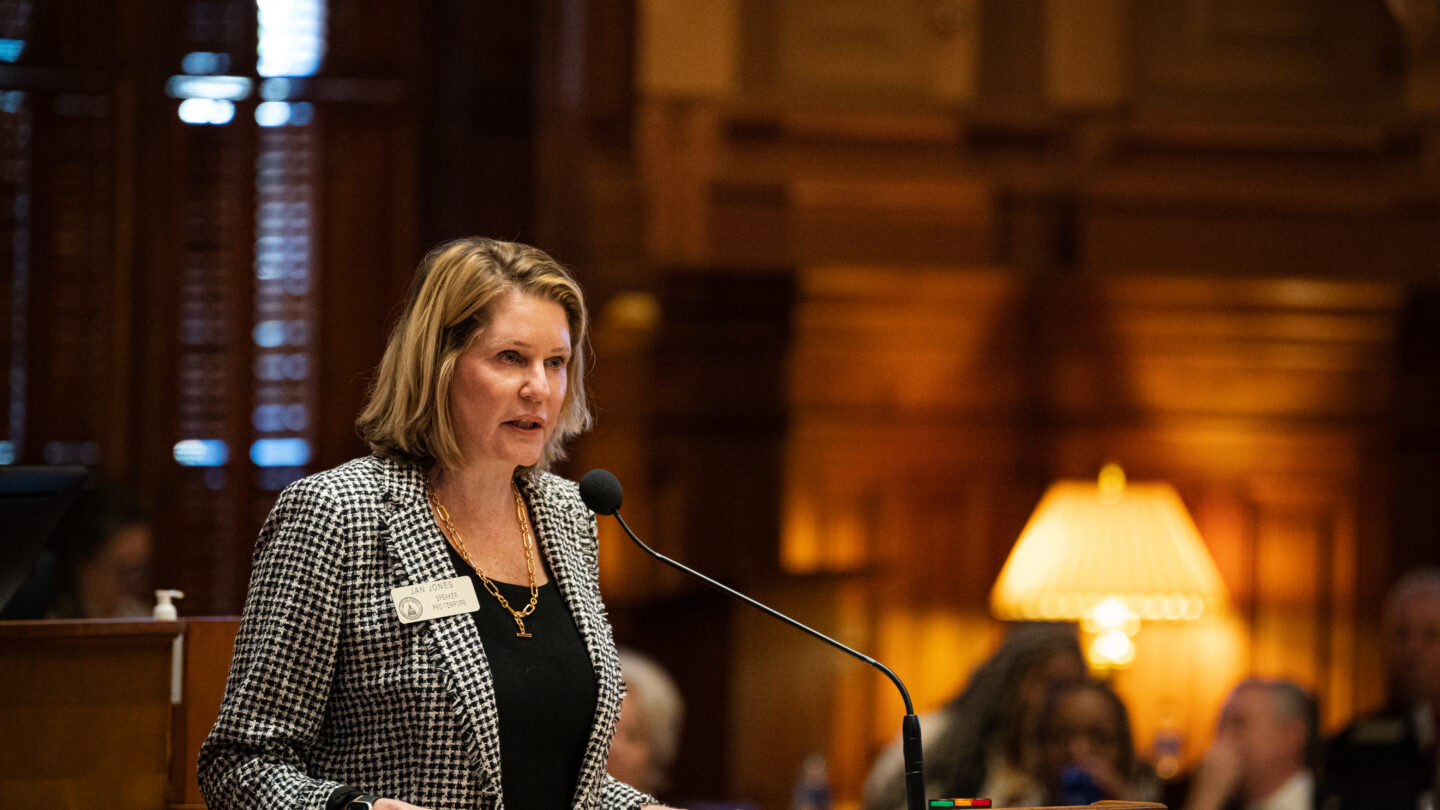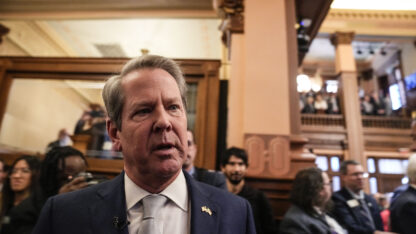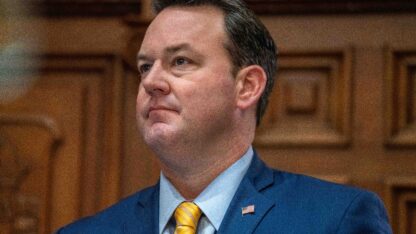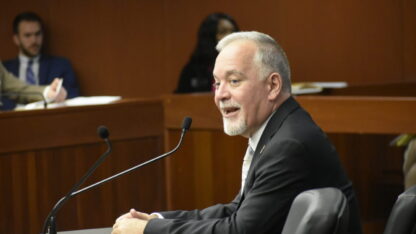As officials broke for lunch on the first day of budget week at the state Capitol, the Georgia House Working Group on Early Childhood Education convened to make an announcement in the heart of the Gold Dome.
They want $100 million from Gov. Brian Kemp to support preschools across Georgia.
House Speaker Pro-Tempore Jan Jones is the group’s chairwoman. She made the $100 million request, flanked by Speaker of the House Jon Burns and other colleagues in the House of Representatives.
The money would be used to increase teacher pay, decrease class sizes and support schools’ operational and infrastructural development.
“An assistant teacher, today, earns $20,000,” Jones said. “She or he could make more working full-time at Target.”
According to the working group’s report, low compensation for pre-K educators is a big reason that Georgia preschools have struggled to keep staff since the pandemic.
Though paying teachers more will not fix the problem wholesale, Jones said that it will help a lot, especially because pre-K educators are leaving their jobs to teach for the K-12 system — it pays more.
“We can’t do pre-K without teachers,” said Amy Jacobs, who is the commissioner for Georgia’s Department of Early Care and Learning. “Anything we can do to get exact parity with K-12 will make a huge difference in recruiting and retaining them in our Georgia pre-K classes.”
Jacobs said that teacher pay is a concern that educators have expressed for years, but officials have had to juggle that concern with other priorities.
“But now is the time to address these,” Jacobs continued. “When I talk to teachers, we definitely hear about teacher pay, and the second issue we hear from teachers is ‘We need reduced class size.’”
Reducing the maximum pre-K class size from 22 students to 20 is another line item in the House working group’s $100 million request.
Jacobs said that she is not a teacher herself, but having fewer toddlers to look after in class will make a big difference for educators who are already stretched thin, especially coming out of the pandemic. Smaller class size is also something that she would want as a parent.
“This would really take us to the next level,” she said. “The individualized instruction that [educators] can give to those students, [will] be a huge game-changer for pre-K.”
In addition to increased teacher pay and decreased class size, the House working group also wants to fund school transportation and set aside money for new preschools looking to buy furniture and materials.
Gov. Kemp already budgeted to decrease class size and support school transportation for the first time since the early 2000s. These recommendations — along with increased money for school safety and literacy coaching for teachers — were proposed by State Superintendent Richard Woods in a budget hearing just before Jones’ lunchtime announcement.
The rest of the House working group’s recommendations would either require Kemp to increase spending, or seek money from elsewhere in the budget.
Jones said she believes that Georgia’s lottery reserves could cover the cost of her group’s recommendations.
“There’s about a billion extra dollars sitting in the reserve,” she said. “There’s certainly sufficient funding.”
As Jones sees it, these changes will have a much larger impact than just making preschool more accessible for Georgians.
“The more children that have true availability of pre-K, the more parents that can more quickly re-enter the workforce,” she said. “Child care costs have gone up tremendously and we’ve seen many parents drop out of the workforce — hopefully temporarily — until their children enter full-time school. This particularly affects women.”
Jones added that she met with the governor’s staff ahead of her announcement to go over her group’s recommendations.
Kemp’s office has since said they are waiting to see the official request before moving ahead.









